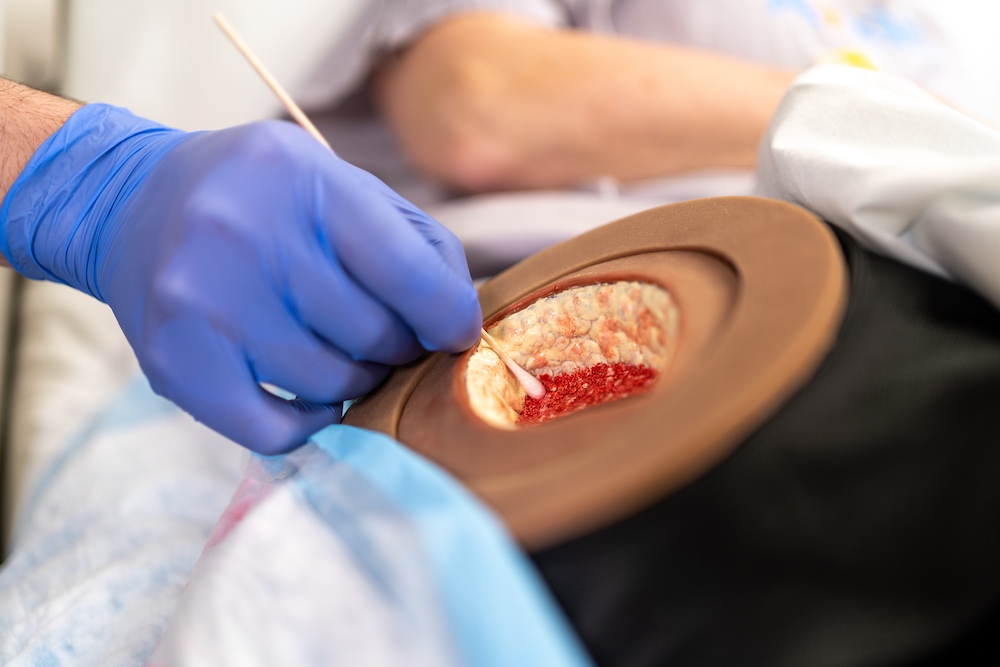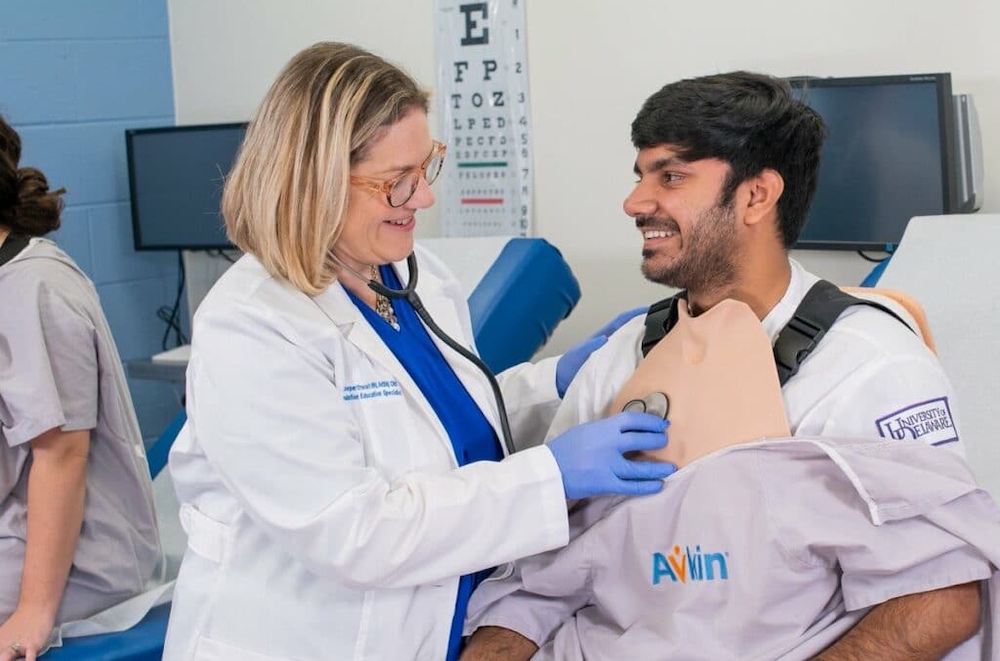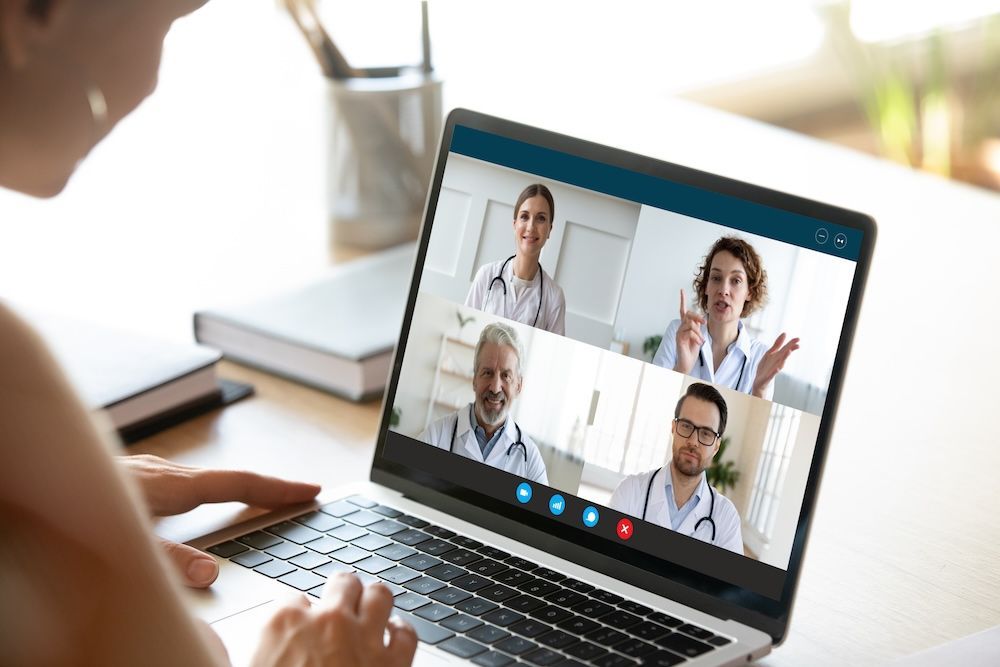The COVID-19 pandemic, among other factors, has reduced many hands-on learning opportunities for aspiring healthcare professionals as clinical simulation programs were forced to limit in-person education. Many clinical simulation sites were forced to restrict access all together. Seeking to provide a solution to these unprecedented challenges, healthcare simulation company Avkin developed the Avwound, a realistic wound care simulator designed to be worn by a simulated patient. This device, combined with a trained standardized patient (SP), creates a realistic but safe environment for learners to practice practical wound care skills, along with the soft communication and empathy skills vital to a patient’s recovery.
“Open wounds are a longstanding problem in hospitals, home health, and other clinical settings. They are quick to set in and require detailed, attentive care to treat, especially for our most vulnerable populations,” said Avkin CEO and founder Amy Cowperthwait. “With the Avwound, we can now create a realistic clinical experience, easily replicated for all learners to have the same detailed experience and patient feedback in a safe, simulated setting. Specially certified wound care experts have designed the Avwound to ensure critical learning objectives can be met.”
The Avwound boasts high-grade silicone, to accurately replicate skin blanching for wound assessment and staging. Different casings allow educators to mimic the wound care experience that matches their curricular needs. A variety of inserts replicate all four-pressure injury stages: a healing pressure injury, a laceration and a dehisced wound healing by secondary intention.
The technology includes the ability to include drainage that oozes from the wound bed and sensors so the simulated patient knows when the wound is being palpated. The strap system allows the wearer to place the wound in many different positions over the standardized patient’s body, including the sacrum, thigh, hip, abdomen and shoulder. Three different skin tone options are available to provide matching options for diverse simulated patients and ensure the fidelity of the simulation.
The Avwound does not just look like a wound, though. Infused within the product, an advanced fluidics system, powered by the Avkin App, gives learners the ability to unpack, drain and repack wounds. Antimicrobial fluids are included with the product, including blood, serous, serosanguineous, purulent and seropurulent exudates. Haptic feedback cues the wearer to react appropriately when the wound is being palpated or packed with gauze.
“Authentic wearable simulators like the Avwound are needed now more than ever. Avkin’s mission is to provide the products and educational services that will create safe learning environments where healthcare professionals can master critical skills, both hard and soft, before encountering the same patient care experience in clinical practice,” said Cowperthwait. “If we as educators fail to prepare the next-gen workforce, I believe we could lose an entire generation of nurses who select another profession secondary to burnout and disillusionment.”
More About Avkin
Avkin makes wearable simulators and provides educational services for an array of healthcare simulation settings. Founded in 2015 by Cowperthwait, a simulationist herself, Avkin provides a clinical simulation solution that combines the best of high-fidelity simulation and the realism of simulated patients for the most authentic medical simulation experience possible.
Headquartered in Wilmington, Delaware, Avkin believes that the key to success in patient-centered care is to replace high-fidelity manikins with hybrid simulations that include simulated participants and Avkin’s wearable simulators. Hands-on experience with human-to-human interaction is vital in healthcare education both for the patient and the provider. Avkin’s sensor-enabled, wearable technology provides unmatched interactivity between the simulated patient and learners. Through haptic feedback, the SP is cued to realistically respond to the care being provided. Avkin looked to shift healthcare education pedagogy and created a new class of educational products and wearable simulators.
“[The future of healthcare simulation is] a mix of AR and simulated participants for training. There is no denying that VR/AR technology is just getting better. The key to the technology better preparing our learners for the clinic is acknowledging that they will still not replace human interaction. I think the future of simulation is using VR and AR technology as an interactive way to complete repetitive tasks while using simulated participants to learn the human element that can so easily be overlooked by cool tech,” explained Amy Bucha, chief scientific officer at Avkin.
Since inception, Avkin has consistently been recognized for innovation in the healthcare simulation field. The company’s prototype of the Avtrach, a tracheostomy simulator, won the First Place Technology and Innovation Award at the International Meeting for Simulation in Healthcare, leading to Avkin’s founding. The technology has been recognized as a Best University Startup by the National Council of Entrepreneurial Tech Transfer, and even won a Golden Stethoscope Award from Damon John during a Shark Tank Edition of the Dr. Oz show.
Rooted in the Latin words, “akin” and “vera,” Avkin is a combination of the two. With akin meaning “of similar character,” and vera meaning “truth,” our goal has always been to create the best quality products that allow for education to be “of similar character” and “true” to what the learners will experience in real life.
Learn More About Avkin’s Avwound
Today’s article was guest authored by Garret Walton, Solutions Development Representative at Avkin.
Have a story to share with the global healthcare simulation community? Submit your simulation news and resources here!








